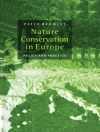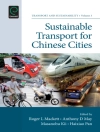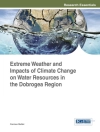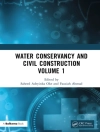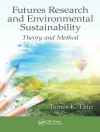This contributed volume discusses the current status of the occurrences, fate and transport of persistent pollutants in water and wastewater. This contents compile the state-of-the-art of emerging technologies such as nanotechnology, advanced oxidation process, membrane processes, sorption, etc. for the clean-up of persistent pollutants in water including heavy metals, pharmaceuticals, phenolic compounds as well as microplastics and their by-products. This volume will be useful as a guide for the researchers to build strategies to deal with persistent pollutant. It also discusses the principal aspects of degradation mechanism of the pollutants, toxic by-products and effectiveness of the emerging technologies. This volume will be a useful guide for those working in soil and water protection, and environmental civil engineering.
Table des matières
Impact of Persistent Pollutants on Water Quality.- Marine microplastics: abundance, ecotoxic consequences of associated anthropogenic contaminants and interactions with microorganisms.- World profile of foreseeable strategies for the removal of per- and polyfluoroalkyl substances (PFASs) from water.- Plasticizers, plastic monomers, and their transformation products in environmental waters and wastewater.- Occurrence and Removal of phthalates from aqueous medium using bismuth tungstate-based photocatalysts.- Application of electrochemical technologies for the efficacious removal of persistent organic pollutants from wastewater.- Recent progress in Electrochemical/Electro-oxidation technology: its applicability in highly efficient treatment of persistent organic pollutants specially from coal processed wastewater.
A propos de l’auteur
Dr. Alok Sinha is currently serving as Professor in the Department of Environmental Science and Engineering and Dean (Infrastructure) at Indian Institute of Technology (ISM), Dhanbad, India. He has also been granted a patent on “Novel system for regenerating and reusing n ZVI/ZVI particles in wastewater treatment”. He has more than 60 publications in peer reviewed journal and is Guest Editor for “Frontiers in Environmental Science”. He has been awarded Best Paper Award by BITS Pilani. He has received Certificate of Excellence for Knimbus “Young Innovator Award” for the year 2013-14. He is a Fellow Member of The Institution of Engineers (India). He has guided 13 Ph.D. thesis and more than 30 M.Tech. thesis and has completed many R&D and Consultancy proposals.
Dr. Swatantra Pratap Singh is an environmental engineer with experience in membrane fabrication, environmental nanotechnology, fate, and transport of pollutants and emerging contaminants in the environment. Currently, he is an associate professor in the Environmental science and Engineering Department (ESED) at IIT Bombay. He has developed a key technology to fabricate the membranes for water purification and print graphene in-situ in a single step. He has multiple US patents and Indian patents (filed) on membrane and laser-based graphene fabrication techniques. He has authored 31 journal articles, 5 book, and 23 book chapters. He has recently won INAE Young Engineer Award (2020), ISEES Young Scientists Award (2020), and IIT Bombay Early Research Award 2021.
Dr. A. B. Gupta holds B.E. (Civil) from MREC Jaipur; M. Tech. and Ph D (Environmental Science and Engineering) degrees from CESE, IIT Bombay. He joined MNIT as a lecturer of Civil Engineering in 1984 and is serving as a Professor since 1996. His administrative assignments at MNIT include HOD (Civil), Dean R&D, Dean (Faculty Affairs) and Director. He has published/presented over 480 papers in various international/national journals/conferences, guided Fifteen Ph Ds and over 100 Masters’ theses, taken up several prestigious research/consultation projects funded by national/ international agencies, and received many academic/ research awards. He has been a non official member of RPCB and Environment and Health Board of Rajasthan and several important committees of DST(GOI), BIS, IRC etc. His major research contributions are in the areas of biological waste treatment; and Environment and health linkages; that have benefitted large segments of the society. Besides a distinguished category lecture at Iowa State University, he has delivered several invited talks, keynote addresses, memorial lectures at national and international institutions and conferences across the world. He is fellow of IE(I), IAEM and life member of many reputed organizations. He has been a member of many selection committees of IITs, NEERI, NITs and other universities.


